The workers’ compensation system aims to provide important economic protection to both employers and employees of all industries. While this insurance can prevent employers from facing liability for their injured workers’ damages, it also provides valuable benefits to injured workers that will help them recover.
If you are hurt while working in any industry, it’s likely that your employer is legally required to have workers’ compensation insurance. State law requires most private employers to have this insurance, and almost all regular employees are covered. After sustaining an injury while working or after developing an illness or medical condition from your work, you should know what to expect in the workers’ compensation claim filing process.
How to File Your Claim for Workers’ Compensation
Every employer is legally required to facilitate their injured workers’ claims for workers’ compensation benefits filed in good faith. After you experience any injury from work, you should report the issue to your employer immediately. They are required to create an incident report explaining the issue and provide you with the materials needed to file your claim. Once you have received your claim forms, you will need to undergo a medical examination.
Almost every workers’ compensation insurance carrier will want a claimant to undergo a formal medical evaluation from one of their approved physicians. Your employer should provide a list of local doctors you can visit for your evaluation. The doctor designated by the employer’s workers’ compensation insurance will rate your disability on the severity of your condition, and your disability rating will determine the extent of benefits you can receive.
Once you have completed these initial steps, you are ready to file your claim to your employer’s insurance company. This will be similar to what you can expect when filing most other types of insurance claims. However, you also face the issue of your employer’s involvement. An experienced workers’ compensation attorney can be an invaluable asset for ensuring that both your employer and their insurance carrier handle your claim in good faith.
Benefits Available Through Workers’ Compensation Insurance
If your workers’ compensation claim is approved, your employer’s insurer will pay for all the medical care you need in order to achieve maximum medical improvement from your injury. They will also provide disability benefits reflecting the diminishment of your earning capacity or your inability to work, awarding either partial or total disability benefits accordingly.
If you can still work but cannot earn as much income as you did prior to your accident, you are likely to receive partial disability benefits that can help make up the difference in your earnings. However, if you are unable to work at all due to the severity of your condition, you will receive total disability benefits. Each weekly payment will be roughly two-thirds of your usual weekly wage, and these payments may continue for up to 104 weeks or until you recover.
You could be entitled to additional compensation beyond what workers’ compensation insurance can provide. For example, if a third party caused your injury, you might be able to file a personal injury claim against them. The sooner you consult with an attorney, the more likely you are to fully recover from your damages. Pratt Law Corporation is ready to help explore all your options for legal recourse after an injury at work.
FAQs
Q: What Is the Five-Year Rule for Workers’ Compensation?
A: In California, an injured worker can continue receiving weekly disability benefits for up to 104 weeks. However, they do not need to take these payments consecutively. The Five-Year Rule enables the claimant to have their disability benefit payments spread over a five-year period, beginning on the date their injury occurred. Your attorney can help you make any such arrangements you may deem necessary in your case.
Q: Is California a No-Fault Workers’ Compensation State?
A: Yes, the state follows the no-fault rule for workers’ compensation claims. This means it is not necessary to prove fault for your injury to recover workers’ compensation benefits, nor can you be excluded from seeking these benefits if you accidentally caused your own injury. However, proving fault will be essential for a personal injury claim if you intend to pursue a civil suit along with your workers’ compensation claim.
Q: What Injuries Are Covered by Workers’ Compensation Insurance?
A: Most physical injuries and illnesses, as well as some mental health conditions, are covered by workers’ compensation under California law. The main determining factor is whether a medical condition arose directly from your work duties. As long as you can prove that you suffered an injury, acquired an illness, or developed a mental health condition directly from performing your job, you are likely covered by your employer’s insurance.
Q: Can You Get Fired While on Workers’ Compensation?
A: Your employer is not legally required to hold your job, nor does workers’ compensation protect you from being fired for a lawful reason. Your employer cannot simply fire you for filing a workers’ compensation claim, however. Doing so would be a form of wrongful termination and could be the basis of a discrimination suit against your employer. If you are terminated for a lawful reason, it should not cause your benefits to cease.
Q: Should I Hire a Lawyer to Help With a Workers’ Compensation Claim?
A: Hiring legal counsel that you can trust will significantly improve your chances of success with your workers’ compensation claim. Not only can they help file your claim and resolve any disputes raised by the insurance carrier, but they can also help explore alternative avenues of recovery, such as a personal injury claim. You are more likely to win your case and more likely to maximize your total recovery when you have an experienced attorney representing you.
The team at Pratt Law Corporation has years of professional experience resolving work injury claims for clients throughout the state. If you are ready to learn what our firm can do for your recovery, contact us today to schedule a free consultation with our team.





